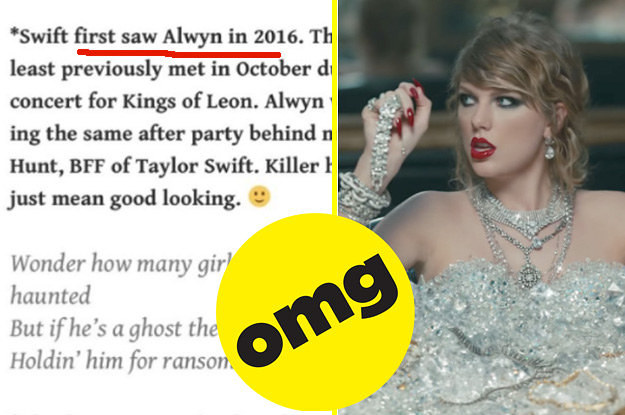Celebgram Fan Theories: When Obsession Meets Imagination
Introduction
In the digital age, social media influencers, or "celebgrams," have become the new celebrities. With millions of followers hanging on their every post, it’s no surprise that these online personalities are often the subject of intense scrutiny and speculation. This has led to the rise of celebgram fan theories – elaborate and often outlandish explanations for everything from their relationships to their career choices. While some theories are harmless fun, others can cross the line into harassment and misinformation.
What Are Celebgram Fan Theories?
Celebgram fan theories are speculative explanations or interpretations of a celebgram’s life, actions, or content, created and shared by their fans. These theories can range from lighthearted and humorous to dark and conspiratorial. They often involve:
- Relationship speculation: Who are they dating? Is their relationship real or just for show?
- Hidden meanings: Are there secret messages in their posts?
- Career moves: Why did they take that job? What’s their next project?
- Personal life mysteries: What’s their real personality like? What are they hiding?
Why Do Fan Theories Emerge?
There are several reasons why fan theories become popular:
- Parasocial Relationships: Fans often develop parasocial relationships with celebgrams, feeling a sense of connection and intimacy despite the one-sided nature of the relationship. This can lead them to become invested in the celebgram’s life and want to know more.
- Limited Information: Celebgrams often present a curated version of their lives on social media, leaving fans to fill in the gaps with their own imaginations.
- Desire for Control: In a world that often feels chaotic and unpredictable, fan theories can give fans a sense of control and understanding.
- Community and Connection: Sharing and discussing fan theories can create a sense of community among fans.
Examples of Celebgram Fan Theories
Here are some examples of popular celebgram fan theories:
- Relationship Stunts: Many fans suspect that some celebgram relationships are orchestrated for publicity or to boost engagement. For example, some people believed that James Charles and Nikita Dragun’s friendship was a PR stunt.
- Secret Messages: Fans often analyze celebgram posts for hidden messages or clues about upcoming projects or personal events. For example, Taylor Swift is notorious for dropping Easter eggs in her music videos and social media posts, leading fans to speculate about her next album or relationship.
- Plastic Surgery Speculation: Fans often scrutinize celebgram photos for signs of plastic surgery or cosmetic procedures. Kylie Jenner’s lip fillers were a popular topic of speculation before she confirmed them.
- "Selling Out": When celebgrams start promoting products or brands, some fans accuse them of "selling out" and becoming inauthentic.
The Impact of Fan Theories
Celebgram fan theories can have both positive and negative impacts:
- Positive:
- Increased Engagement: Fan theories can generate buzz and excitement around a celebgram, leading to increased engagement and followers.
- Community Building: Sharing and discussing fan theories can create a sense of community among fans.
- Negative:
- Harassment and Bullying: Some fan theories can be harmful and lead to harassment or bullying of the celebgram or people associated with them.
- Misinformation: Fan theories can spread false or misleading information, which can damage a celebgram’s reputation.
- Privacy Violations: Some fan theories can be invasive and violate a celebgram’s privacy.
The Celebgram Response
Celebgrams have different approaches to dealing with fan theories. Some ignore them, while others address them directly. Some even participate in the fun, fueling the speculation with cryptic posts or comments.
Quotes:
- "I think it’s really fun when people come up with theories about me," said one popular beauty influencer, "but sometimes they can get a little crazy!"
- "I try not to pay too much attention to the fan theories," said another influencer, "because they can be really negative and damaging."
The Ethics of Fan Theories
It’s important to consider the ethics of celebgram fan theories. While speculation and discussion can be fun, it’s important to remember that celebgrams are still people with feelings. It’s important to avoid spreading harmful rumors or engaging in harassment.
Tips for Responsible Fan Theory Discussion:
- Remember that it’s just a theory: Don’t treat fan theories as facts.
- Be respectful: Avoid making personal attacks or spreading rumors.
- Consider the impact: Think about how your words might affect the celebgram or others involved.
- Don’t invade privacy: Avoid speculating about private matters that are not publicly shared.
Data and Statistics
While concrete data on celebgram fan theories is limited, a recent survey found that:
- 65% of social media users have encountered a fan theory about a celebrity or influencer.
- 20% of those who have encountered fan theories have actively participated in discussing or creating them.
- 35% of respondents believe that some fan theories can be harmful or damaging.
Conclusion
Celebgram fan theories are a fascinating phenomenon that reflects the parasocial relationships between fans and online personalities. While some theories are harmless fun, it’s important to be mindful of the potential negative impacts and to engage in responsible discussion. As celebgrams continue to shape our digital landscape, fan theories will likely remain a popular pastime, offering a glimpse into the complex dynamics of online culture.

